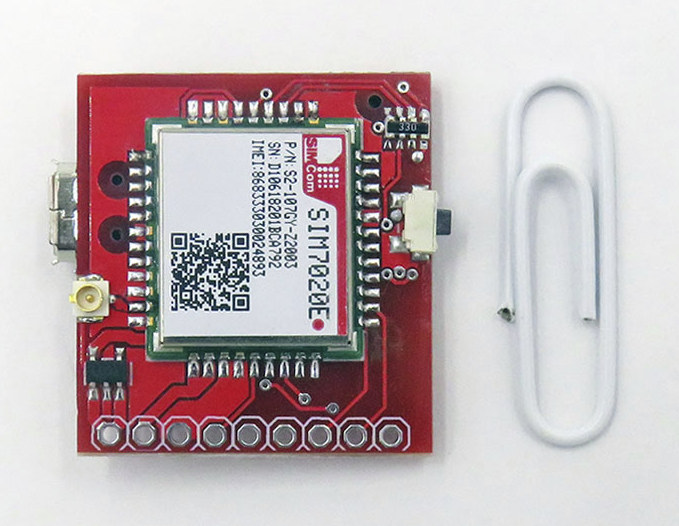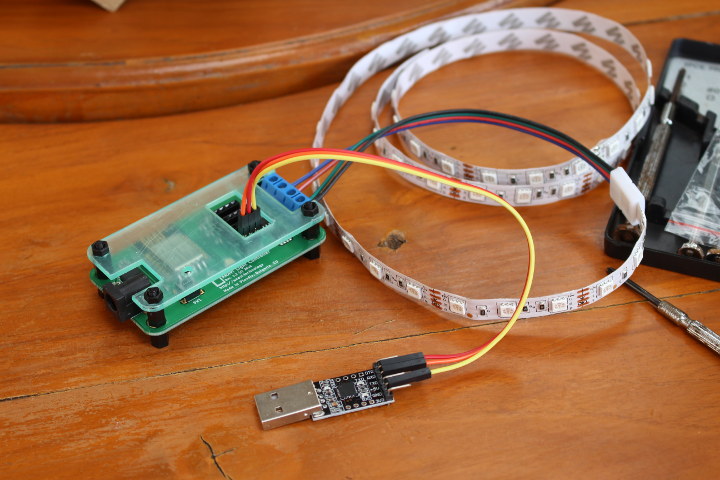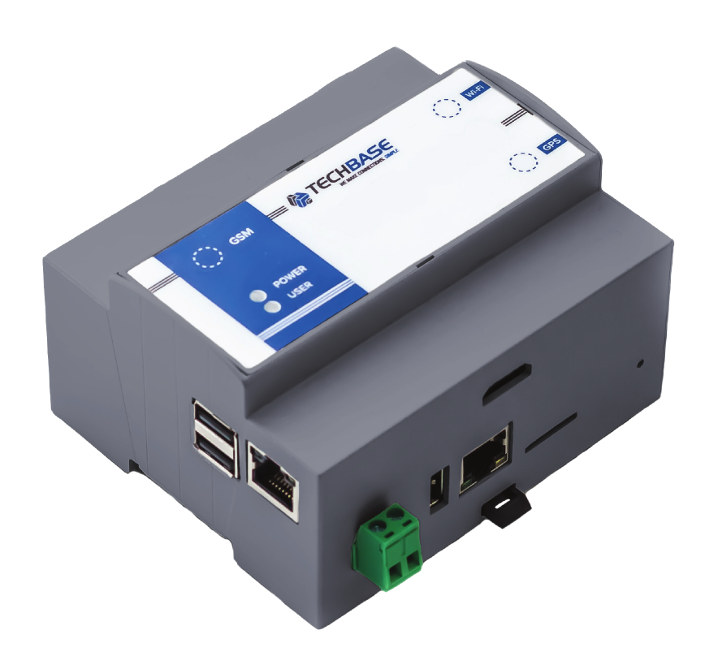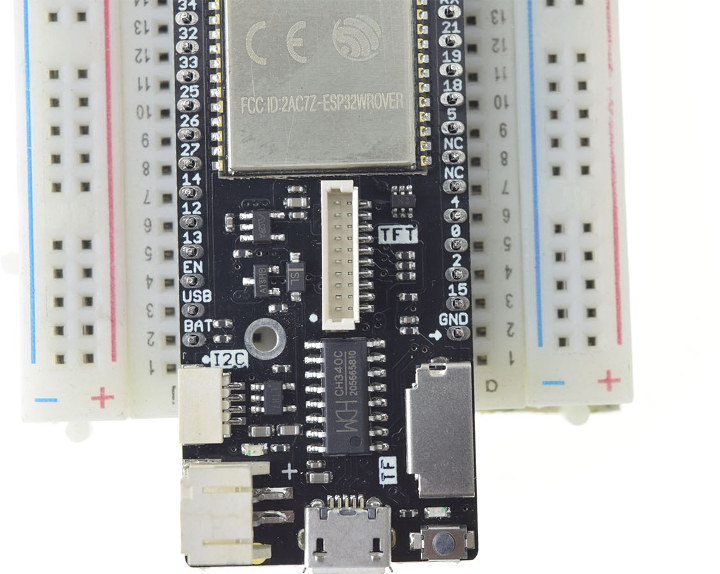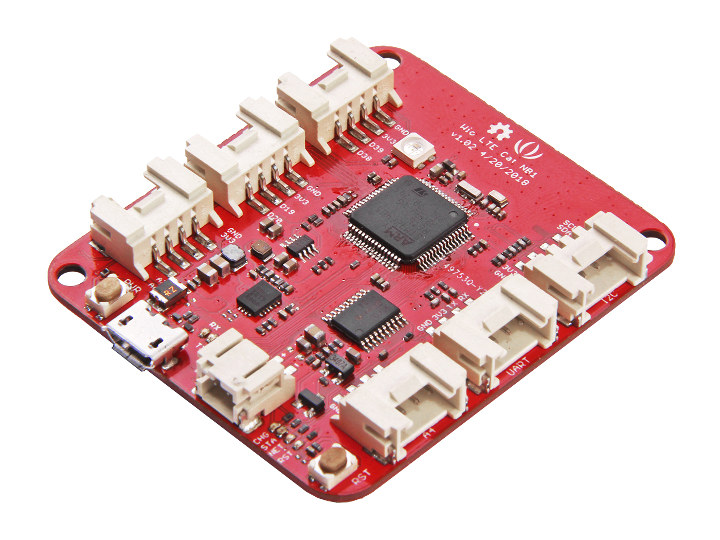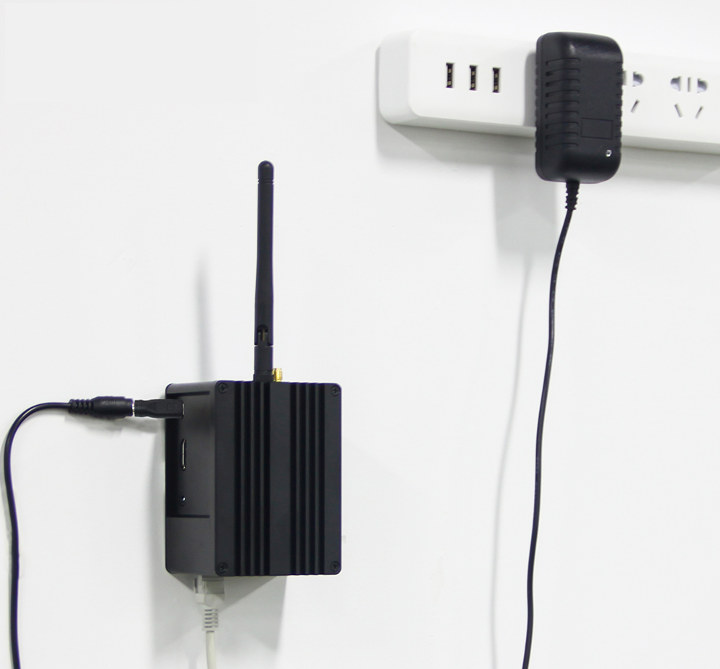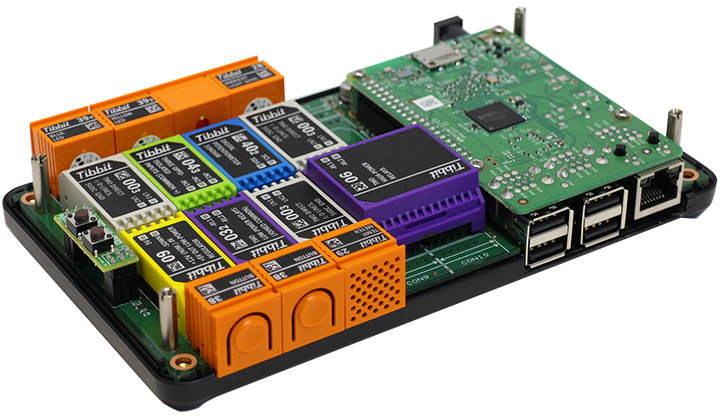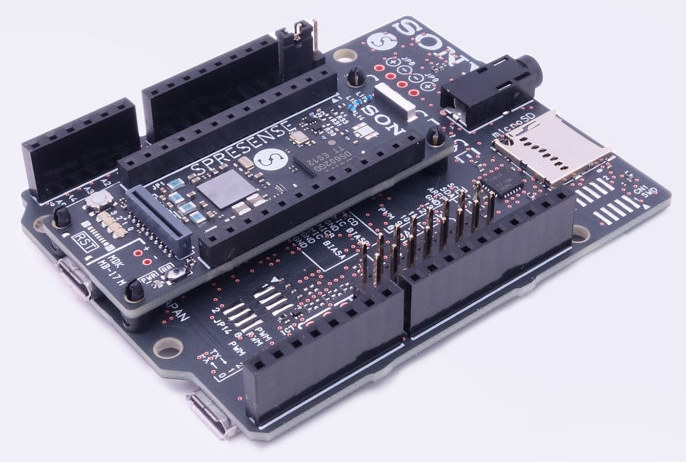We now have plenty to choose from when it comes to NB-IoT development boards or shields, but so far pricing has not been very attractive, and the cheapest NB-IoT solution I found so far was probably Dragino NB-IoT Bee, a XBee compatible board going for $23. But this morning, I saw an even cheaper NB-IoT board with SIM7020E 4G NB-IOT Mini development board selling for $14.30 on Electrodragon. Not quite the price of 2G solutions, but we’re getting there. Board specifications: NB-IoT Module – SIMCom SIM7020E module working globally with B1/B3/B5/B8/B20/B28 bands supported Nano SIM card holder and u.FL connector for NB-IoT Expansion – 9-pin unpopulated 2.54mm pitch header with 2x UART (3.3V / 5V), ADC, Boot, 3.3V, 5V and GND USB – 1x micro USB port that can be recognized by PC, but as Electrodragon puts it: “not sure how to use it”. Misc – Net LED, power key […]
ESP8266 RGB LED Strip Control with ANAVI Light Controller, Arduino, MQTT, and HTML5
A few months ago I reviewed ANAVI Light pHat for Raspberry Pi which allows you to control an LED RGB strip from the popular development board. However, if all you need is to switch the RGB LED light on and off, or change the color, the hardware is clearly overpowered for the tasks. So Leon ANAVI designed another board based on ESP8266 – ANAVI Light Controller – which does the same thing with lower cost and more power efficient hardware. Leon sent me a sample for review, so let’s see what we’ve got. ANAVI Light Controller Starter Kit Unboxing I received a package for the Starter kit that’s offered for $39 on CrowdSupply. We’ve got the main board, a USB debugging, an acrylic enclosure with screws and spacers, a one meter RGB LED strip, and some stickers inside the package. If we have a close look at the board we […]
ModBerry M500 Industrial Computer Upgraded to Raspberry Pi 3 B+ with PoE Support
TECHBASE has been making modular industrial computers based on hobbyist boards for several years with products like ModBerry M300 IoT Gateway. ModBerry M500 is another of their model, powered by a Raspberry Pi 3 board and launched in 2016. The company has now upgraded the industrial gateway to Raspberry Pi 3 B+ board, and added PoE support in the process. ModBerry M500 specifications: SoC – Broadcom BCM2837B0 quad-core Arm Cortex-A53 processor @ 1.4 GHz with VideoCore IV GPU System Memory – 1GB DDR3 Storage – 8GB micro SD card Video & Audio Output – HDMI 1.4 and 3.5mm jack for CVBS (composite + stereo audio) Connectivity Gigabit Ethernet (max 300 Mbps) Dual band 802.11 b/g/n WiFi and Bluetooth 4.2 LE Optional Zigbee, LTE/3G, GPS, WiFi, and Bluetooth cards USB – 2x USB 2.0 host ports Expansion I/Os 2x RS-232/RS-485 4x digital inputs, 4x digital outputs up to 30V DC 1-wire […]
Wemos LOLIN D32 Pro ESP32 Board Supports TFT Displays, Comes with a micro SD Card Slot
Wemos is popular for their low cost WiFi board based on Espressif SoCs. Their most popular board is ESP8266 based Wemos D1 mini thanks to its compact form factor, low price ($5 shipped), and available add-on boards. But they’ve also launched some ESP32 in the last year or so with development boards such as Wemos LOLIN32 Lite. Their latest ESP32 board – LOLIN D32 Pro v2.00 – features ESP32-WROVER module, and beside exposing I/Os via breadboard compatible headers, also offers a micro SD card slot, a TFT display connector, and an I2C header. LOLIN D32 Pro specifications: Wireless module – ESP32-WROVER 802.11 b/g/n WiFi + Bluetooth 4.1 LE module with 4MB Flash, 4MB PSRAM Storage – micro SD card slot supporting SPI mode Display I/F – TFT display connector USB – 1x micro USB port for programming and power Expansion 2x 16-pin headers with GPIOs, SPI, I2C, UART, ADC, DAC, […]
Wio LTE GPS Tracker Board Gets a Cat M1/NB1 Version for $59
Seeed Studio launched a family of GPS tracker boards staring with Wio GPS with 2G cellular connectivity, followed by Wio LTE board offering 4G connectivity several months later. The company is taking pre-order for an LTE Cat M1/NB1 version with NB-IoT / eMTC connectivity, and going for $59 plus shipping. The board is expected to start shipping on July 25th. Wio LTE Cat M1/NB1 board specifications: MCU – STMicro STM32F405RG Arm Cortex-M4 @ 168MHZ with 1M Flash, 192+4KB RAM Connectivity LTE uBlox SARA-R410M module LTE CAT M1 and NB-IoT Cat M1 Half-duplex (375 kb/s DL and UL) Cat NB1 Half-duplex (27.2 kb/s DL, 62.5 UL) Nano SIM and micro SD card 2-in-1 socket GNSS uBlox MAX-M8Q module PS, BeiDou, GLONASS, and Galileo 2.5m CEP(GPS), 4.0m CEP(GLONASS) USB – 1x micro USB port for power supply and DFU Expansions – Grove headers: 2x digital, 2x analog, 1x UART, 1x I2C Misc […]
RAK831 Lite is a $200 LoRa / LoRaWAN Gateway based on Raspberry Pi 3 Board
RAK831 is a Semtech SX1301 based LoRa gateway module that was released by RakWireless in 2017. The board has since then be sold as part of the company’s LoRa gateway developer kit with a Raspberry Pi and a MAX-7Q GPS Module. But now RakWireless offers a nicely packaged solution with Raspberry Pi 3 board, RAK831 module, a GPS board, an enclosure, antenna, and power supply which they call RAK831 Lite, and sells for just $199 + shipping ($6.45 extra here).RAK831 Lite gateway main components and specifications: Main board – Raspberry Pi 3 development board with Broadom BCM2837 processor, 1GB RAM, micro SD card slot, Fast Ethernet, 4x USB ports, HDMI output, audio jack Connectivity RAK831 LoRa Concentrator board based on SX1301 chipset RF frequencies – 433, 470, EU868, AS923, AU915, and US 915 Rx Sensitivity – -140 dBm Tx Power – Up to 25.5 dBm at settings 27 dBm SMA […]
Tibbo-Pi is a Wirefree Modular IoT Prototyping Platform for Raspberry Pi Board
Tibbo Project System (TPS) is a modular Linux IoT prototyping platform based on the same Texas Instruments Sitara AM335x processor used in BeagleBone Black or a PocketBeagle boards, and comprised of a main board, Tibbit blocks to add features as needed, and an enclosure. I’ve now been informed the company will be at Computex 2018 to showcase their new products including Tibbo-Pi, following the same concept as Tibbo Project System, but leveraging Raspberry Pi 3 board and ecosystem instead. While an English brochure is said to be available, all information in the webpage listed in the photo above is in Japanese. But basically, Tibbo-Pi is said to be an IoT edge device for industrial use, made for build a prototypes, or small scale production system thanks to a choice a 60 different Tibbit Blocks sensor and I/O module blocks, all wire free. Programming of the system is typically done with with […]
Sony SPRESENSE Arduino Compatible GNSS + Audio IoT Board To Sell for $50 (in Japan)
Last year, we covered Sony Spritzer, an Arduino compatible with a Sony hexa-core Arm Cortex-M4F micro-controller, a built-in GNSS receiver, and an audio codec. The product page for this product is now gone, but it appears Sony only renamed it to SPRESENSE, made some design modifications, and is ready to launch the main board for 5,500 JPY (~$50), and the extension board for an extra 3,500 JPY ($32) on July 31, 2018. Sony SPRESENSE main board (CXD5602PWBMAIN1) specifications: MCU – Sony CXD5602 ARM Cortex-M4F ×6 micro-controller clocked at up to 156 MHz with 1.5MB SRAM Storage – 8MB Flash Memory GNSS – GPS & GLONASS Audio – 3.5mm audio jack Expansion I/Os Digital I/O Pins – GPIO, SPI, I2C, UART, PWM, I2S Analog Pins – 2ch (0.7V range) Camera interface USB – 1x micro USB port for programming and power Power Supply – 5V via micro USB port Dimensions – […]


